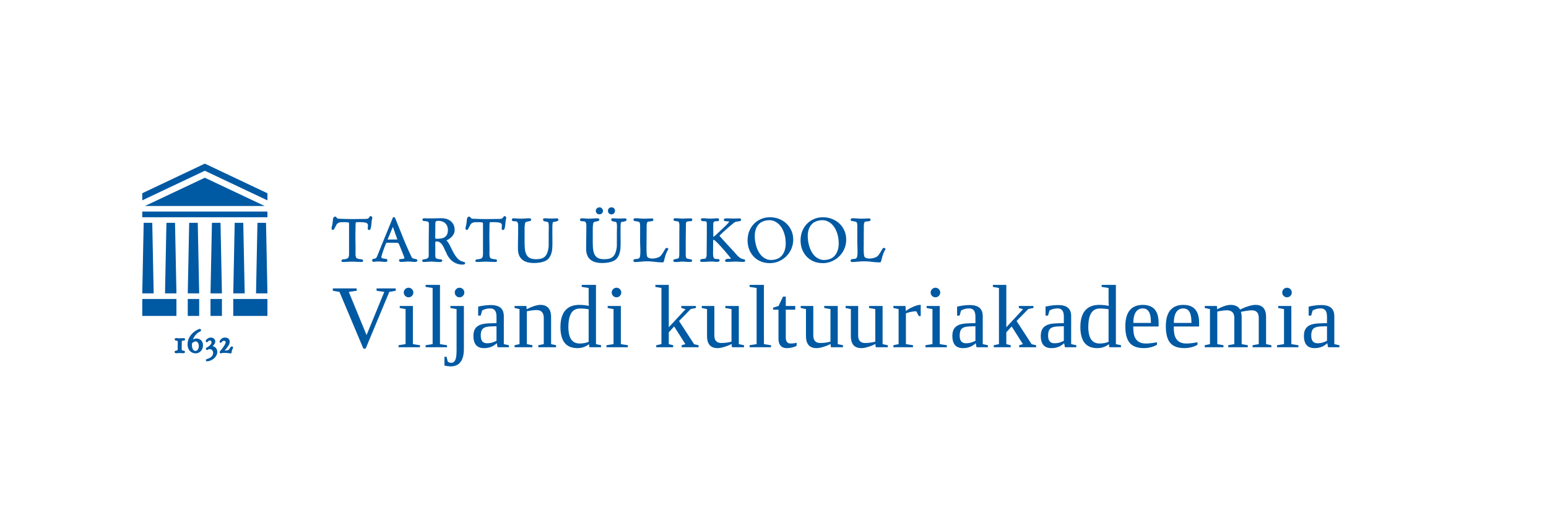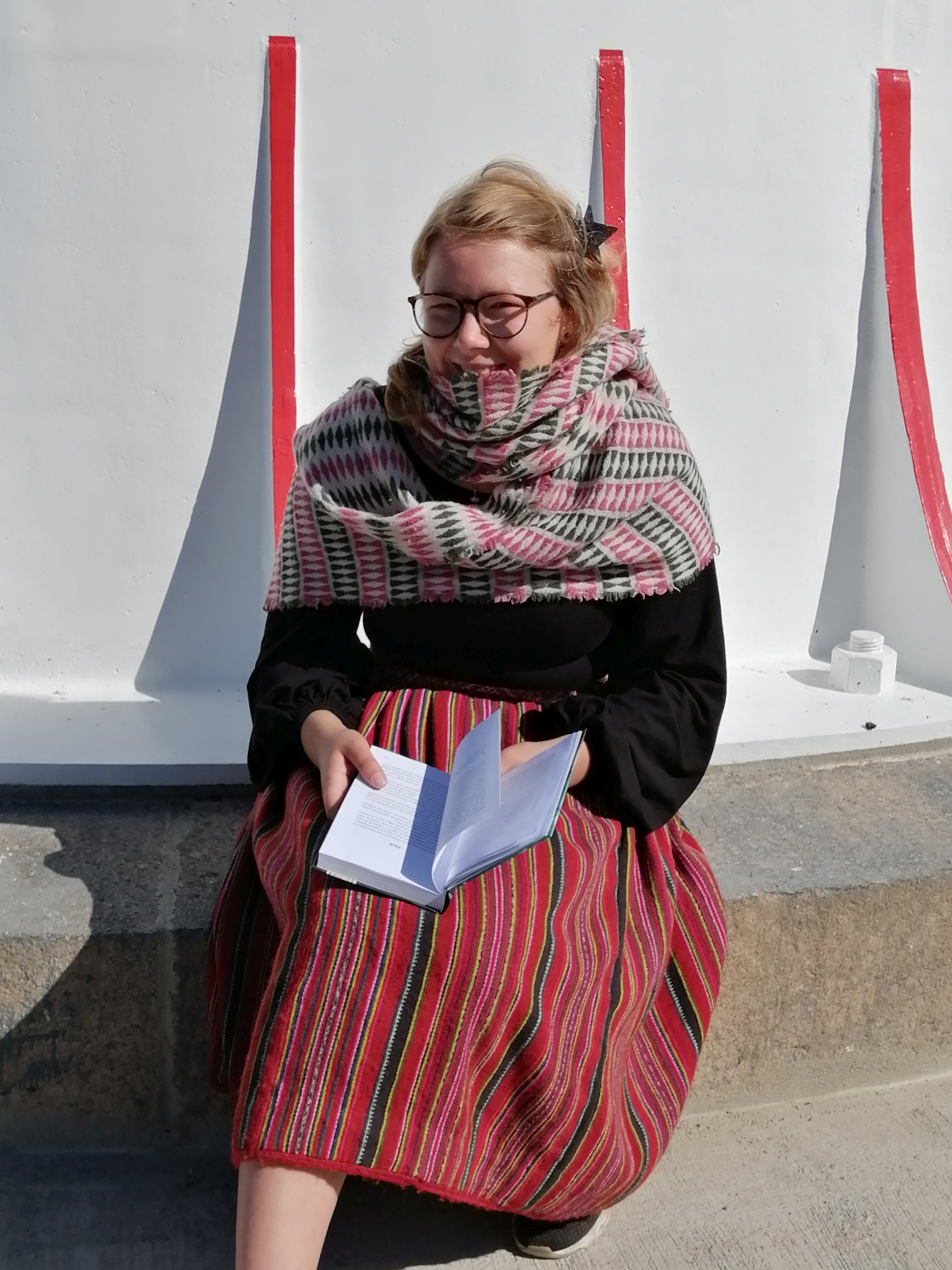“TEADMISTE ÜLEKANNE aLLIKATE MÕNGU PÕHJAL” (juhendaja Ivar Männamaa).
LÜHIÜLEVAADE: Reili Väli töö väärib mu meelest esiletõstmist oma lihtsuse pärast. Valitud on selgepiiriline uurimisülesanne ja asjakohane metoodika. Töö tulemused on esitatud arusaadavalt ja piisava täpsusega, tähelepanu väärib ka autori üha süvenev huvi kvantitatiivse andmeanalüüsi vastu. Kuigi lihtsat tööd on üldjuhul raskem teha kui keerulist, saan Reili kasutatud lähenemisviisi uudishimulikele tudengeile üksnes soovitada.
Ivar Männamaa
lektor
TÜ Viljandi Kultuuriakadeemia
LÄBITUD ÕPPEKAVA: huvijuht-loovtegevuse õpetaja õppekava.
SUMMARY: Knowledge Transfer from The Fountains-game
To find out, does game-based learning enable knowledge transfer and affect student`s acculturation attitudes, I decided to conduct a research.
Main research problems are:
1. There is a lack of researches, which examine knowledge transfer from concrete activity to formulated attitudes. Existing studies show that most of the times knowledge transfer is not happening.
2. There is a lack of researches, which present game-based learning efficiency. That is the reason why games aren`t used very often in school programs.
Searching for solutions to these problems I investigated acculturation attitudes change with qualitative research method and used the Fountains-game as an intervention instrument. I conducted an experiment, which was the game itself. This method was the best for identifying game-based learning. I used purposive sample, where participated 4 gymnasium class students and 1 university course students, all in total 69 participants. Students were divided into testgroup and control-group.
To discover knowledge transfer I used a questionnaire, which was designed for game and changed it in cooperation with the author. Participators had to answer twelve arguments on rating-scale one to ten. About two weeks gap both groups answered questionnaire two times. Test-group played the Fountains-game after the pre-test and control-group didn`t. I analyzed test results and made deductions, did knowledge transfer happen or not. In this research has been analyzed the literature according to the subject.
The hypotheses of this work are:
1. Fountains game affects student`s acculturation attitudes, in favor of integration.
2. Students attitudes change in subjects that Fountains-game doesn`t involve directly (knowledge transfer).
Knowledge transfer can be defined as: “It`s a process where knowledge is acquired in one situation and utilized in different situation.” (Jeong jt 2013, lk 47) Leisure time manager assignment is to change school environment more supportive for knowledge transfer. Leisure time manager should teach, how to use the knowledge in different situations. Knowledge transfer is very important in game-based learning, because generally it means using knowledge in various circumstances.
Game-based learning is one of the most important experiential learning methods, which are used in different domain. One of the most important parts of the experiential-learning is debriefing; this post-game analyzing guarantees new knowledge. Fountains-game is a simulation-game, which is designed to be a teaching-material, which helps to understand acculturation processes.
Acculturation as cultural change process, which takes place when different cultures meet, exists in every multicultural situation. Acculturation attitudes change in time. Different life situations create experiences. Experience-based learning change people values and behavior. Participators in simulation-games get in touch with environment, where they live and different behavior and communication styles.
First of all I conducted pre-test, when comparing the results, seemed that acculturation attitudes in test- and control-groups are quite similar. Pre-tests show above all already formed opinions and attitudes against ethnic minorities.
Test-groups pre- and post-test results comparing showed that knowledge transfer has happened, which means that acculturation attitudes have changed (p<0,00). Control-groups pre- and posttest results comparing showed minimal change (p= 0,19). Which means that in two weeks they haven`t learn a thing in acculturation subject. In conclusion game-based learning enables knowledge transfer. Hypotheses found verification.
Research results can be used by game-leaders, when they decide to conduct a Fountains game. This research highlights the game-based learning possibility and shows that even international relations and conflicts can be illustrated. This research can help to explain teachers, youth workers and leisure-time managers the advantages and productiveness of game-based learning 41 and encourage teachers to use more games during lessons. I`m convinced that games need more research, especially as experience-based learning methods. Knowledge effect on attitudes change need more research and different games are suitable for that.



